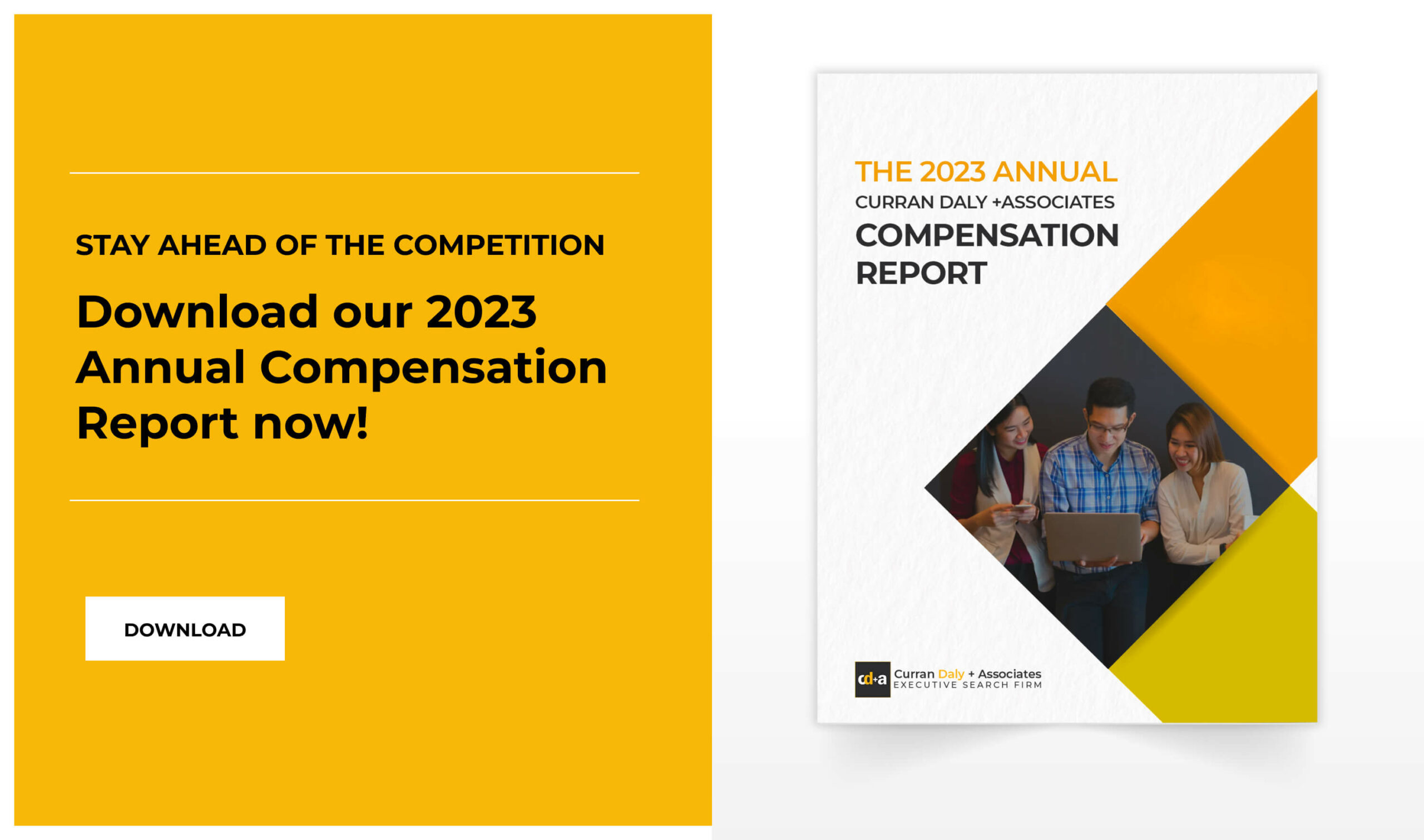- As the world slowly moves on the path to recovery, companies need to look ahead and think about what leadership will look like in the coming years.
- They need to look at the external forces that will shape future leaders today and the challenges involved in future-proofing the organization.
- A holistic future-proof organization needs to have the foresight to plan for future disruptions to make the company even more resilient than before.
- This is where mentorship comes into play. Opening opportunities for leadership and mentorship training beyond the executive level should be a common practice.
- By developing employees into future leaders with mentorship programs, organizations will be more flexible in redeploying people faster to new management roles.
- As a result, the organization will have a more productive, innovative, and adaptive workforce that is more resilient to any social or economic disruption.
After more than a year of unprecedented business disruption, organizations have started to realize that leadership of the management during these critical moments left a lasting impression on their employees.
With their decision-making skills under a microscope, the best agile leaders have definitely stood out from the crowd by adopting business practices that would support and sustain their workforce.
“The pandemic has wreaked havoc on the old ‘command and control style of leadership. Leaders have had to learn how to trust their people and let go of the control they once had.” observed Lianne Picot, chief executive and co-founder of the People Leadership Academy.
Pivoting the business to tackle a black swan event and to prepare for future recovery requires embracing an agile growth mindset.
Fundamentally, both employers and employees need to adapt and be agile enough to move forward as the whole organization prepares to be more resilient in the coming years.
As the world slowly moves on the path to recovery, companies need to look ahead and think about what leadership will look like in the coming years. They need to look at the external forces that will shape future leaders today and the challenges involved in future-proofing the organization.
Organizations today need leaders who are adaptable to the various trends that may affect businesses in the coming years. To future-proof an organization, the company also needs to have a future-proof leader who looks ahead and does more than maintaining the status quo.
A New Era for Leadership and Mentorship
When employees finally return to the office, the management will undoubtedly have new challenges to face. One of those will be about addressing and abiding respectful boundaries to promote health and safety.
Naturally, managers need to strengthen their interpersonal skills by training leaders about conflict resolution, crisis management, coaching, and engaging employees. In addition, companies need leaders who can embrace complexity and ambiguity, be empathetic, compassionate, and understanding. In a world facing an unpredictable path to recovery, all those are invaluable traits that embody future-proof leadership.
Organizations need to move forward and avoid the habit of merely training their employees. Future-proofing the company requires the management to treat the company like a living ecosystem, where all moving pieces have to work in sync to function properly.
A holistic future-proof organization needs to have the foresight to plan for future disruptions to make the company even more resilient than before.
This is where mentorship comes into play. Opening opportunities for leadership and mentorship training beyond the executive level should be a common practice.
Especially now, in times of disruption and uncertainty, guidance for the middle management is all the more important because:
· It helps boost employee confidence during difficult times.
According to an article by the Harvard Business Review, mentors have been proven to be a calming presence during difficult times. Mentors play a pivotal role in building organizational commitment in times of crisis. Research showed that mentors who are actively engaged with mentees form a stronger bond to the organization. As a result, they report higher job satisfaction and perceive greater overall support from the organization.
· It may be more strategic to develop internal talent nowadays.
For organizations that are on the road to recovery, it’s not surprising that they would find talent development to be a little too costly for now. With that said, mentorship offers an inexpensive alternative to help strengthen resources internally. Mentorship is actually one of the most cost-effective ways to invest in leadership development and promoting diverse talent within the company.
· It can help fight isolation.
A Forbes article noted that one of the reasons why mentorship programs are essential in times of crisis is due to lingering factors of loneliness where employees may not have the right support network to lean on. Mentoring programs help fight the feelings of loneliness and isolation, which tends to impact the overall mental health conditions of employees.
A Future-Proof Workforce: Developing future leaders with mentoring
Investing to future-proof the organization means that companies will have a more mobile and adaptable workforce. Consequently, the organization will also foster more career advancement opportunities for its employees.
By developing employees into future leaders with mentorship programs, organizations will be more flexible in redeploying people faster to new management roles. It will also be easier for the company to find people with similar skills and build them further through a mentor and mentee relationship. As a result, the organization will have a more productive, innovative, and adaptive workforce that is more resilient to any social or economic disruption.
How mentoring helps develop future leaders
· Learning from seeing
Mentorship enables employees to see what great leadership is like and how they can emulate it in their own careers. Since mentors are leading future organizational leaders, mentees learn more about people management, and their interaction with mentors will propel them to be the best version of themselves.
· Learning from doing
Mentorship involves more than just providing a bit of verbal advice over a cup of coffee. Great mentors offer practical suggestions to help their mentees transition to become future leaders. In addition, they encourage mentees to participate in organizational activities, tasks, and events that will better prepare them to achieve their career goals.
· Networking and sponsorship
A great mentor usually has an equally great network of leaders within the industry. The network they built from their years of experience can help push promising employees into the direction of other leaders that can also help them grow in the industry.
· Leveling the playing field
Underrepresented groups of individuals can gain a lot from mentorship programs as it levels the playing field for employees within the organization. For example, women and ethnic minorities may find it hard to seek inspiration and role models in their careers. Finding mentors who were the first trailblazers of their field will help them carve a career for themselves in the organization.
How mentoring helps current leaders
· Reverse mentoring
It may sound like an oxymoron, but mentees can also be mentors to their mentors. In a world where technology is rapidly evolving, senior executives can also learn from their younger colleagues. This is an excellent opportunity to help bridge the generation gap and connect different demographics within the organization.
· Interacting with different members of the organization
Mentorship programs can help support other individuals outside of the group of people they usually manage daily. While there may be mentors who opted to stay inside their sphere of influence, some mentorship programs actually expose mentors to different types of individuals and personalities inside the company.
Things to Keep in Mind When Starting a Mentorship Program
· Tailor career development to a particular individual rather than their current role.
Ensure that career development is more than just a one size fits all mentorship program. Make it tailored to the individual rather than the current role of the employee in the organization.
· Accept that career growth in the company does not have to be linear.
There are more than a few ways to climb the corporate ladder. Let employees explore what they’re good at and create an opportunity for them to grow within the company.
· Offer solutions to help employees get clarity on their career goals.
With mentorship programs, employees have an avenue for open communication with their mentors. Mentors can offer valuable advice on the career trajectory of employees and help them create a plan to achieve their goals.
· Train managers to lead transparent conversations about the career goals of their employees.
Part of a manager’s job is to manage the expectations of its employees. Make sure that each employee’s career goals are also aligned with the overall vision of the company.
· Communicate new business offerings to help employees understand future opportunities for growth in the organization.
A company’s investment for future innovations must be directly conveyed to employees to make it part of their career trajectory.
· Invest in upskilling and reskilling solutions for current employees to continue to evolve with the company.
Investing in upskilling and reskilling employees are essential to future-proof the organization.
· Foster a culture where employees can try out different types of work and career paths.
Make sure that an employee’s career path within the company does not remain stagnant. Instead, give them the freedom to try out different career paths outside of their comfort zone.
· Shift the company perspective to hire individuals to grow with the organization rather than people to fill current roles.
Invest in employees that show potential and help them nurture it within the company. Top talent is hard to come by, so make sure that the organization gives them the right opportunities to grow.
CDA is here to help you recruit executive talent that will future-proof your organization.
As the most trusted, go-to executive recruitment and search firm in the Philippines, our experienced, well-connected headhunters have helped global organizations solve their recruitment needs.
Our holistic and targeted approach for executive search service will help you find industry-leading candidates. Partner with us and tell us more about your recruitment needs.
References:
Brand, C. (2021). Council Post: To Future-Proof Your Business, Future-Proof Your Employees. Retrieved 13 September 2021, from https://www.forbes.com/sites/forbesbusinesscouncil/2020/03/18/to-future-proof-your-business-future-proof-your-employees/?sh=395d2862dd8c
Future-Proofing Your Company: Prepare For Now And What’s To Come. (2021). Retrieved 13 September 2021, from https://www.bwbacon.com/blog/future-proofing-your-company
Future-Proof Your Talent – Developing a Future-Proof Talent Leadership for an Intelligent Organization . (2020). Retrieved 13 September 2021, from https://www.linkedin.com/pulse/future-proof-your-talent-developing-leadership-intelligent-vs-ravi/?articleId=6721319382456393728
Kurter, H. (2021). 6 Ways You Can Future Proof Your Business For A Post-Pandemic Workplace. Retrieved 13 September 2021, from https://www.forbes.com/sites/heidilynnekurter/2020/05/31/6-ways-you-can-future-proof-your-business-for-a-post-pandemic-workplace/?sh=3d0a6bac2046
Lloyd, L. (2018). Leadership mentoring: The key to developing and cultivating effective leaders – Mentorloop Mentoring Software. Retrieved 13 September 2021, from https://mentorloop.com/blog/leadership-mentoring-effective-leaders/
New rules for a new world: future-proofing leadership — Financier Worldwide. (2021). Retrieved 13 September 2021, from https://www.financierworldwide.com/new-rules-for-a-new-world-future-proofing-leadership#.YS7qiC3Xe-o
Smith, E. (2020). Why Mentoring Matters More During the COVID-19 Crisis. Retrieved 13 September 2021, from https://associationsnow.com/2020/07/mentoring-matters-covid-19-crisis/










0 Comments